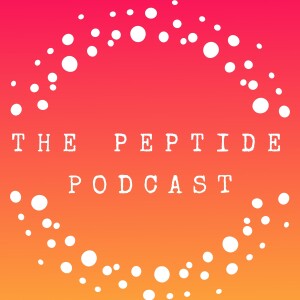
- Podcast Features
-
Monetization
-
Ads Marketplace
Join Ads Marketplace to earn through podcast sponsorships.
-
PodAds
Manage your ads with dynamic ad insertion capability.
-
Apple Podcasts Subscriptions Integration
Monetize with Apple Podcasts Subscriptions via Podbean.
-
Live Streaming
Earn rewards and recurring income from Fan Club membership.
-
Ads Marketplace
- Podbean App
-
Help and Support
-
Help Center
Get the answers and support you need.
-
Podbean Academy
Resources and guides to launch, grow, and monetize podcast.
-
Podbean Blog
Stay updated with the latest podcasting tips and trends.
-
What’s New
Check out our newest and recently released features!
-
Podcasting Smarter
Podcast interviews, best practices, and helpful tips.
-
Help Center
-
Popular Topics
-
How to Start a Podcast
The step-by-step guide to start your own podcast.
-
How to Start a Live Podcast
Create the best live podcast and engage your audience.
-
How to Monetize a Podcast
Tips on making the decision to monetize your podcast.
-
How to Promote Your Podcast
The best ways to get more eyes and ears on your podcast.
-
Podcast Advertising 101
Everything you need to know about podcast advertising.
-
Mobile Podcast Recording Guide
The ultimate guide to recording a podcast on your phone.
-
How to Use Group Recording
Steps to set up and use group recording in the Podbean app.
-
How to Start a Podcast
-
Podcasting
- Podcast Features
-
Monetization
-
Ads Marketplace
Join Ads Marketplace to earn through podcast sponsorships.
-
PodAds
Manage your ads with dynamic ad insertion capability.
-
Apple Podcasts Subscriptions Integration
Monetize with Apple Podcasts Subscriptions via Podbean.
-
Live Streaming
Earn rewards and recurring income from Fan Club membership.
-
Ads Marketplace
- Podbean App
- Advertisers
- Enterprise
- Pricing
-
Resources
-
Help and Support
-
Help Center
Get the answers and support you need.
-
Podbean Academy
Resources and guides to launch, grow, and monetize podcast.
-
Podbean Blog
Stay updated with the latest podcasting tips and trends.
-
What’s New
Check out our newest and recently released features!
-
Podcasting Smarter
Podcast interviews, best practices, and helpful tips.
-
Help Center
-
Popular Topics
-
How to Start a Podcast
The step-by-step guide to start your own podcast.
-
How to Start a Live Podcast
Create the best live podcast and engage your audience.
-
How to Monetize a Podcast
Tips on making the decision to monetize your podcast.
-
How to Promote Your Podcast
The best ways to get more eyes and ears on your podcast.
-
Podcast Advertising 101
Everything you need to know about podcast advertising.
-
Mobile Podcast Recording Guide
The ultimate guide to recording a podcast on your phone.
-
How to Use Group Recording
Steps to set up and use group recording in the Podbean app.
-
How to Start a Podcast
-
Help and Support
- Discover

Thanks for listening to The Peptide Podcast.
Today we're going to talk about the importance of sleep and different peptide therapy options available to help with sleep.
Read the Full Episode Transcript:
https://pepties.com/healthy-sleep-and-peptide-therapy/
Dr. Nikki's Qualifications:
https://bifat.life/about/
Related Links/Products Mentioned:
Peptide Podcast Partners Page
https://pepties.com/partners/
BioLongevity Labs (Purchase Peptides online)
Use our link and enter COUPON CODE: PEPTIDEPODCAST at checkout to receive 15% off your total order
https://go.biolongevitylabs.com/aff_c?offer_id=1&aff_id=1582&aff_sub=PEPTIDEPODCAST
Momentous Supplements (we use Creatine, Vital Aminos, Whey Protein)
https://crrnt.app/MOME/OqGQOxGA
LMNT – More Salt, Not Less.
https://elementallabs.refr.cc/default/u/johnjavit
Thorne Supplements (we use Omega-3 with CoQ10, Red Yeast Rice, Zinc)
https://get.aspr.app/SH1KvW
Organifi Creatine and Shilajit Gummies
http://rwrd.io/rlbkajm?c
MitoZen (methylene blue for Cognitive Function, Anti-Aging, Mental Clarity)
https://www.mitozen.com/ref/cnlwiztypt/
For skin and hair health (Copper Tripeptide-1)
Visit Luminose by Entera for an exclusive offer for Peptide Podcast listeners!
** Promo code PEPTIDEPODCAST at checkout for 10% off an order or 10% off the first month of a subscribe-and-save. **
https://www.enteraskincare.com/?rfsn=8906839.f93c72
📚 Free Information:
A Comprehensive Guide to the Top 27 Peptide Therapies
https://pepties.com/a-comprehensive-guide-to-the-top-27-peptide-therapies-how-they-work-benefits-and-side-effects/
The Ultimate Peptide Therapy Guide
https://pepties.com/the-ultimate-peptide-therapy-guide/
Peptide Injections: How Do You Inject Yourself With Peptides?
https://pepties.com/guide-to-injecting-peptides/
Top Episodes:
Injectable BPC-157 vs Oral BPC-157
https://pepties.com/injectable-bpc-157-vs-oral-bpc-157/
NAD+
https://pepties.com/nad/
FAQs About Tirzepatide
https://pepties.com/faqs-about-tirzepatide/
More Episodes
 2026-01-29
2026-01-29
 2026-01-22
2026-01-22
 2026-01-01
2026-01-01
 2025-12-25
2025-12-25
 2025-12-18
2025-12-18
 2025-11-27
2025-11-27
 2025-11-20
2025-11-20
 2025-11-13
2025-11-13
 2025-11-06
2025-11-06
 2025-10-26
2025-10-26
 2025-10-09
2025-10-09
 2025-10-02
2025-10-02
 2025-09-18
2025-09-18
Create your
podcast in
minutes
- Full-featured podcast site
- Unlimited storage and bandwidth
- Comprehensive podcast stats
- Distribute to Apple Podcasts, Spotify, and more
- Make money with your podcast
It is Free
- Privacy Policy
- Cookie Policy
- Terms of Use
- Consent Preferences
- Copyright © 2015-2026 Podbean.com



